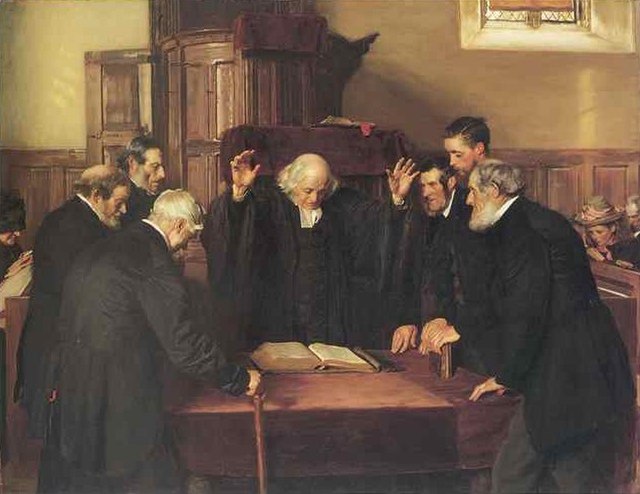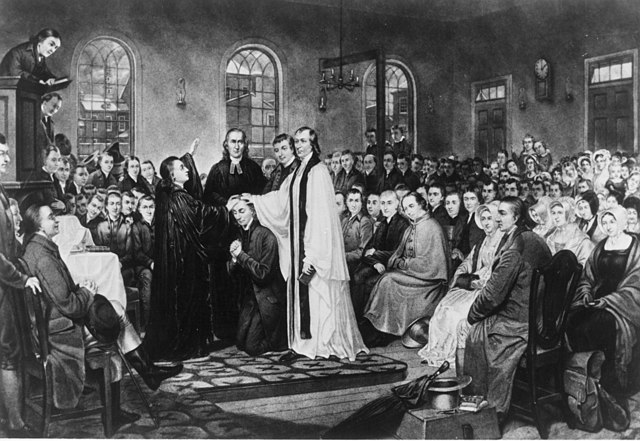Presbyterian polity is a method of church governance typified by the rule of assemblies of presbyters, or elders. Each local church is governed by a body of elected elders usually called the session or consistory, though other terms, such as church board, may apply. Groups of local churches are governed by a higher assembly of elders known as the presbytery or classis; presbyteries can be grouped into a synod, and presbyteries and synods nationwide often join together in a general assembly. Responsibility for conduct of church services is reserved to an ordained minister or pastor known as a teaching elder, or a minister of the word and sacrament.
The Ordination of Elders in a Scottish Kirk, by John Henry Lorimer, 1891. National Gallery of Scotland.
Presbytery flags of the Presbyterian Church of Vanuatu
Ecclesiastical polity is the government of a church. There are local (congregational) forms of organization as well as denominational. A church's polity may describe its ministerial offices or an authority structure between churches. Polity relates closely to ecclesiology, the theological study of the church.
The apostles Peter and John laying hands in ordination. Illustration, 1873.
An Anglican deacon, bishop and priest. Priests are usually former deacons in episcopal polity.
The ordination of Methodist Bishop Francis Asbury, 1784.
Cathedral churches like St. Andrews were incompatible with the presbyterian polity taught by John Knox. This statue stands in St. Giles, still called a cathedral despite no longer serving as an episcopal seat.






